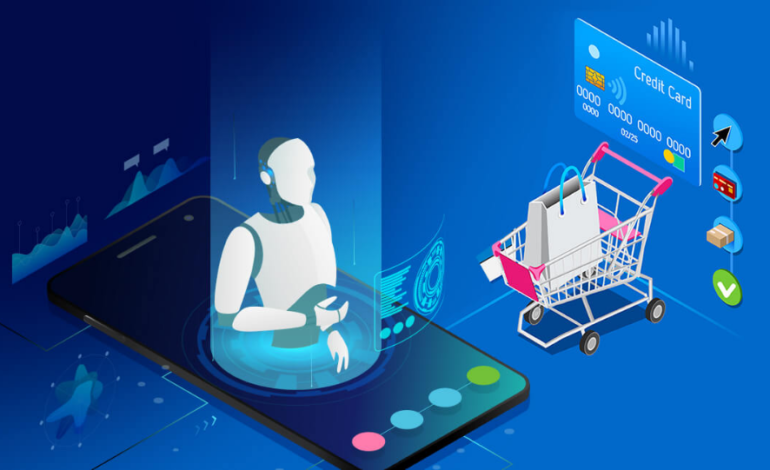The Role of Artificial Intelligence in HealthTech Startups

Artificial Intelligence (AI) has rapidly become a disruptive force in the healthcare industry, unlocking unprecedented possibilities in diagnostics, treatment, and patient care. HealthTech startups are at the forefront of this transformation, leveraging AI’s ability to analyze vast amounts of medical data, generate actionable insights, and improve operational efficiency. This revolution isn’t just confined to traditional healthcare settings. Instead, it is paving the way for a more patient-centered, efficient, and predictive healthcare ecosystem.
HealthTech startups using AI are making it possible to anticipate and prevent diseases, provide real-time diagnostic tools, and design highly personalized treatment plans. By harnessing the power of machine learning, natural language processing, and computer vision, AI is playing a vital role in reshaping the future of healthcare.
Transforming Diagnosis and Treatment
One of the most significant contributions of AI to the healthcare industry lies in the realm of diagnosis. HealthTech startups are now developing AI algorithms that can analyze medical images, patient histories, and other complex datasets more accurately and swiftly than human doctors. This helps in diagnosing diseases early, which is crucial for conditions like cancer, cardiovascular diseases, and diabetes.
For example, AI-powered tools are being used to detect anomalies in medical imaging, such as X-rays and MRIs, with remarkable precision. These technologies are improving diagnostic outcomes, reducing human errors, and providing healthcare professionals with valuable second opinions. Additionally, AI is being utilized to suggest personalized treatment plans based on real-time data from wearable devices, electronic health records (EHRs), and genetic profiles, ensuring that treatments are more aligned with individual patient needs.
AI-Powered Medical Imaging
Medical imaging is one area where AI has shown profound potential. Startups focusing on AI-driven imaging technologies are helping radiologists identify tumors, fractures, and other conditions in a fraction of the time it would take manually. AI algorithms can process and interpret images like CT scans, X-rays, and MRIs with higher accuracy than traditional methods.
For example, Zebra Medical Vision, a HealthTech startup, developed an AI-powered platform that automatically analyzes medical imaging reports. Their algorithms can identify signs of cardiovascular disease, liver disease, and even early signs of osteoporosis. With these technologies, medical professionals are able to make faster, more accurate diagnoses, reducing waiting times for patients and improving overall healthcare delivery.
Moreover, AI-driven imaging reduces the workload of radiologists by offering pre-analyzed reports, allowing them to focus on more complex cases. This has a significant impact on hospitals with limited staff and resources, helping bridge the gap in access to quality healthcare.
Personalized Medicine & AI
Personalized medicine, or precision medicine, is another critical area where AI is making waves. HealthTech startups are leveraging machine learning algorithms to analyze genetic, environmental, and lifestyle factors to create highly customized treatment plans for patients. By evaluating large-scale genomic datasets, AI can predict a patient’s response to specific treatments, leading to more effective and less invasive interventions.
AI’s ability to assess a patient’s unique profile allows doctors to predict how individuals will respond to drugs, which is especially important in treating conditions like cancer, autoimmune diseases, and neurological disorders. Companies like Tempus are at the forefront of this revolution, using AI to analyze clinical and molecular data to provide insights into personalized cancer care.
This shift towards AI-powered personalized medicine ensures that healthcare is moving away from a one-size-fits-all approach, improving patient outcomes and reducing the risk of adverse drug reactions.
Revolutionizing Drug Discovery with AI
The drug discovery process has traditionally been a slow, expensive, and labor-intensive task. However, AI is dramatically changing this landscape. HealthTech startups are now using AI to sift through vast amounts of biological data, predicting which compounds will most effectively combat diseases.
For instance, startups like Insilico Medicine are utilizing AI models to speed up the discovery of new drugs. Their platform combines deep learning with generative biology to identify potential drug candidates much faster than traditional methods. What once took years to achieve can now be accomplished in a matter of months, significantly reducing the time and cost involved in bringing new drugs to market.
Additionally, AI models can simulate how a drug will interact with different proteins in the body, allowing researchers to weed out ineffective candidates early in the development process. This increases the likelihood of success in clinical trials and ultimately gets life-saving drugs into the hands of patients sooner.
AI-Driven Healthcare Administration
HealthTech startups are not just focusing on clinical applications; AI is also making significant strides in healthcare administration. Administrative tasks like appointment scheduling, billing, and patient record management are time-consuming for healthcare staff. By integrating AI-powered solutions, hospitals and clinics can streamline their operations, reduce administrative overhead, and allow healthcare professionals to dedicate more time to patient care.
AI-driven chatbots are being employed to handle patient inquiries, schedule appointments, and provide follow-up care instructions. For instance, Babylon Health, a digital healthcare startup, has developed AI-powered virtual assistants that help patients with their medical queries, reducing the burden on healthcare workers.
In addition, AI tools are used for predictive analytics in hospital management, such as forecasting patient admissions, optimizing staffing, and managing medical supply inventories. These applications help healthcare facilities operate more efficiently, reducing costs and improving patient satisfaction.
The Role of Machine Learning in Patient Care
Machine learning, a subset of AI, is playing a pivotal role in enhancing patient care. Predictive analytics, fueled by machine learning, allows healthcare providers to foresee patient needs and intervene before conditions worsen. For example, machine learning models can analyze patient data to predict readmissions, enabling doctors to provide proactive care and reduce hospital stays.
HealthTech startups are also developing AI-based remote monitoring systems that track patients’ vital signs, alerting healthcare professionals to any abnormalities in real-time. This is particularly useful for managing chronic diseases like hypertension, diabetes, and heart disease, where continuous monitoring is essential.
By using AI to analyze patterns in patient data, healthcare providers can deliver timely interventions and prevent complications, leading to better long-term health outcomes.
Conclusion
Artificial Intelligence is revolutionizing the healthcare landscape, enabling HealthTech startups to deliver smarter, faster, and more personalized healthcare solutions. From diagnostics and drug discovery to personalized treatment plans and streamlined administration, AI is at the heart of this transformation. As the technology continues to evolve, the future of healthcare will likely be shaped by these innovative AI-driven solutions, leading to better patient outcomes and more efficient healthcare systems globally.






